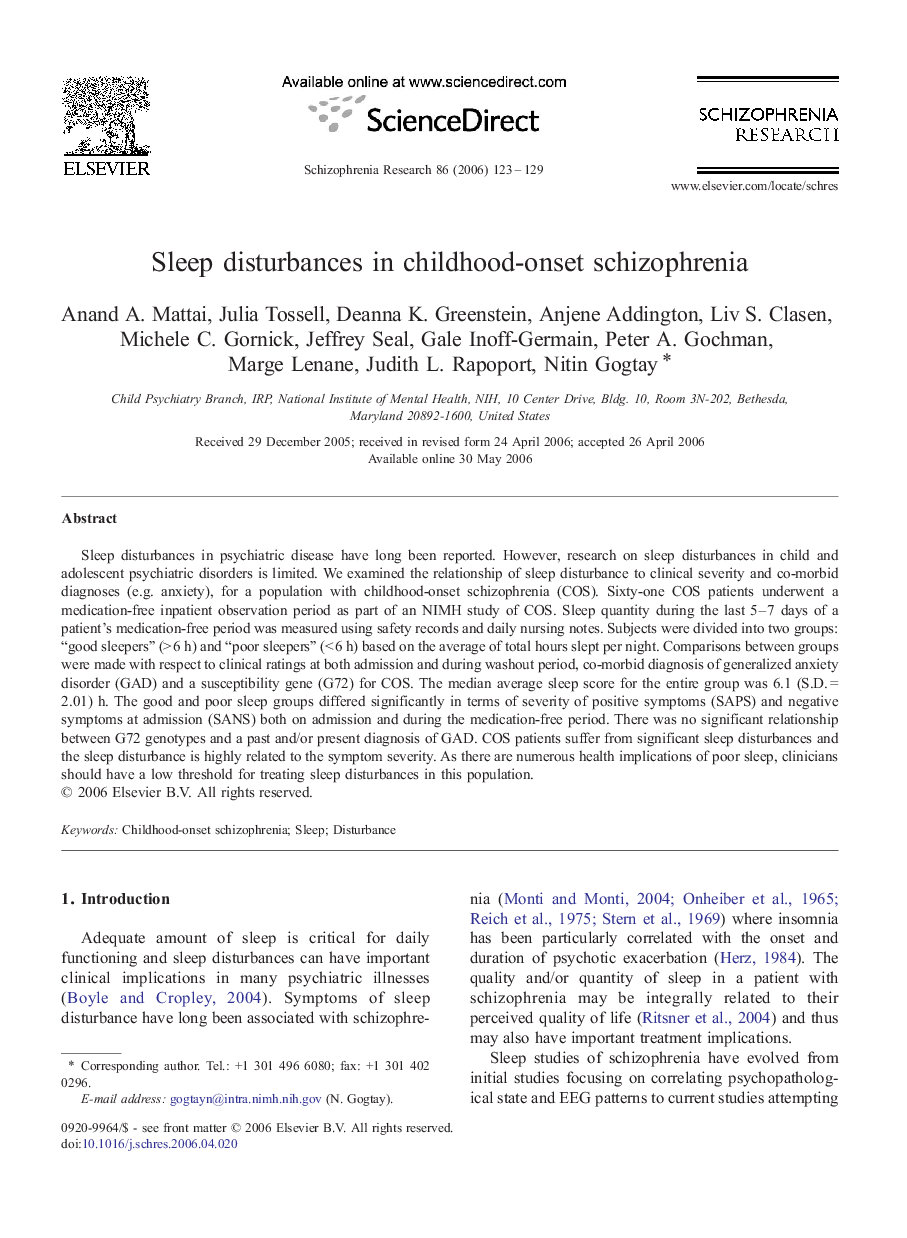| Article ID | Journal | Published Year | Pages | File Type |
|---|---|---|---|---|
| 340223 | Schizophrenia Research | 2006 | 7 Pages |
Sleep disturbances in psychiatric disease have long been reported. However, research on sleep disturbances in child and adolescent psychiatric disorders is limited. We examined the relationship of sleep disturbance to clinical severity and co-morbid diagnoses (e.g. anxiety), for a population with childhood-onset schizophrenia (COS). Sixty-one COS patients underwent a medication-free inpatient observation period as part of an NIMH study of COS. Sleep quantity during the last 5–7 days of a patient's medication-free period was measured using safety records and daily nursing notes. Subjects were divided into two groups: “good sleepers” (> 6 h) and “poor sleepers” (< 6 h) based on the average of total hours slept per night. Comparisons between groups were made with respect to clinical ratings at both admission and during washout period, co-morbid diagnosis of generalized anxiety disorder (GAD) and a susceptibility gene (G72) for COS. The median average sleep score for the entire group was 6.1 (S.D. = 2.01) h. The good and poor sleep groups differed significantly in terms of severity of positive symptoms (SAPS) and negative symptoms at admission (SANS) both on admission and during the medication-free period. There was no significant relationship between G72 genotypes and a past and/or present diagnosis of GAD. COS patients suffer from significant sleep disturbances and the sleep disturbance is highly related to the symptom severity. As there are numerous health implications of poor sleep, clinicians should have a low threshold for treating sleep disturbances in this population.
